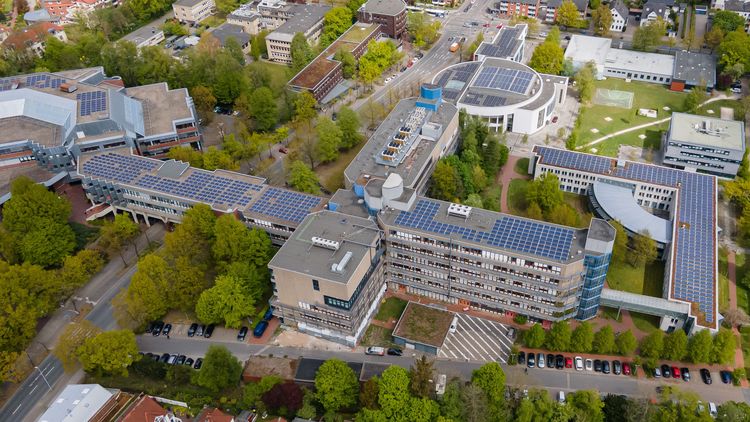Less than a year before the Lower Saxony Climate Act was passed in response to this escalating climate crisis, the "Climate Neutral University" working group began its work in 2020 with regular workshops and discussions. Accordingly, the climate-neutral state administration resulting from the law is not only a requirement for the University of Oldenburg, but the confirmation of the highly committed efforts of its students and employees. Since 2016, "environment and sustainability" has already been one of the three central guiding themes of the university profile. The university therefore understands its contribution to climate action not as a reaction to a climate crisis, but as a permanent task for society as a whole, in which the university would like to actively and specifically contribute with the help of the resources available as a university. This includes research, teaching and learning, university administration and university management in equal measure. The present climate action concept of the University of Oldenburg has developed a catalogue of measures with the goal of achieving climate neutrality by 2030. Examples include the integration of research projects, feasibility studies for renewable energies, the promotion of bicycle infrastructure or the expansion of Green Erasmus funding opportunities.
A large number of people were directly and indirectly involved in the preparation of this climate action concept, for example, in events and workshops, submitted suggestions by e-mail or evaluated and provided data in addition to their work at the university.


